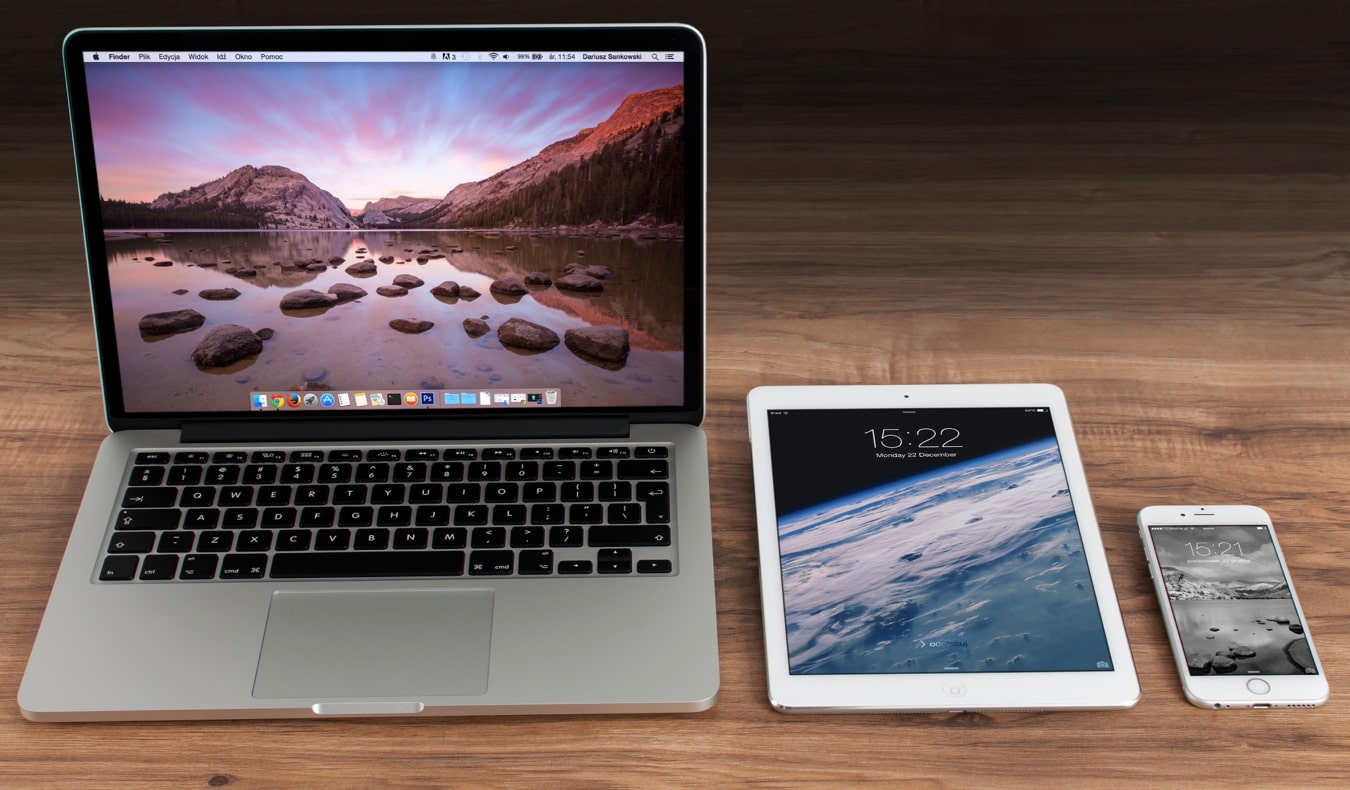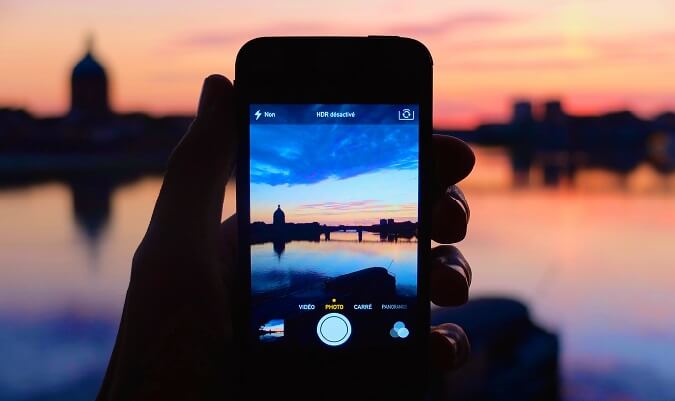
Last Updated: 7/7/2020 | July 7th, 2020
In this guest post, tech expert Dave Dean from Too Many Adapters shares this tips and suggestions to help you decide which tech items are best for you and your trip — and which you can leave at home.
“Should I bring a laptop, tablet, or smartphone?”
It’s a question I’m often asked — and for good reason. There are pros and cons to each device and, with overlapping features, picking the one that’s right for your trip can be confusing.
There are a lot of issues to think about with each device: size, weight, costs, insurance, and security. Striking the right balance between them all isn’t easy, but it is possible.
As a tech guy, I carry a lot of devices (and a lot of chargers) but for those not obsessed with every new device on the market, you only need one device — you want to keep it simple on the road. Here are the pros and cons of carrying a smartphone, laptop, or tablet with you on the road (as well as some gear suggestions).
Smartphone
Everyone travels with a smartphone these days. They’re our camera, our map, our translator, and our way to stay connected with friends and family back home. They’re light, small, and perfect for minimalist travelers who want to keep things simple.
Unless you’re intentionally trying to travel unassisted by technology, you’ll probably have a phone with you.
Not sure if you want to travel with only a phone? Here’s a breakdown of the pros and cons:
Pros
- They replace multiple devices. There’s no longer a need to pack a separate flashlight, map, music player, or alarm clock.
- It’s easy to get connected when you need to, even if you’re not using cellular data. Cafés, airports, and train stations usually have free Wi-Fi available.
- There are hundreds of useful travel apps out there that work both online and offline. Currency converters, translation tools, navigation helpers, guide books, itinerary trackers, and more can help make your travels easier (not to mention Netflix and other entertainment apps).
Cons
- The biggest con is battery life — it’s rare to find a smartphone that will last more than a day of normal use. Long flights, bus rides, and days of exploring often result in a dead phone before you get to your accommodation. With everyone else in your dorm room also wanting to charge their gadgets every night, even finding a power socket isn’t always easy (this means you’ll likely want to buy an external battery charger).
- Although phones are getting larger, a smartphone screen isn’t ideal for entertainment — books and movies aren’t so great on a small screen.
- Websites without mobile-friendly versions get annoying very quickly.
- Typing on phones is fine for updating your Facebook status or sending a quick message, but you’ll end up frustrated if you’re hoping to do much more.
Recommendations
If you aren’t planning on using your device for work, don’t mind a small screen, and just need to use basic apps like maps and translation, a phone is your best choice. If you’re not picky, any basic smartphone will do. However, if you want something with an excellent camera, consider a Google Pixel 4 or an iPhone 11 (older Pixels will also suffice, as will any iPhone from the 8 and up).
If you’re on a budget, Huawei and Motorola both make affordable phones. The P Smart from Huawei and the Moto One Macro are both under $150 USD.
Tablet
Since the iPad came out a decade ago, tablets have exploded in popularity. They offer a larger screen than a smartphone and better battery life too. But they are more expensive and take up a lot more space as well.
Tablets are a great ‘middle of the road’ option for travelers who want a bigger screen (for movies or books) or need to do more computer-related tasks and want a larger keyboard — but who don’t want to lug around a laptop.
They’re also a great choice for anyone traveling with kids since you can fill them with fun apps, games, and offline TV shows.
Pros
- While you might not have standard calling or texts, tools like WhatsApp and Skype can be good replacements if your Internet speed is fast enough. All of the apps work as well or better than on a phone, and the larger screen makes many tasks a little easier.
- Battery life is usually longer than a smartphone, especially when in flight mode or just using Wi-Fi.
- If your tablet does have a cellular data option, you’re in luck there, too — tablets usually have an unlocked SIM card slot. Pick up a local, data-only SIM and you’re good to go.
Cons
- Size is an issue. Even the smaller 7-8″ versions won’t really fit in your pocket unless you’re wearing a large jacket. They’re also heavier than smartphones, especially if you have a full-size tablet.
- Taking photos with tablets is a pain. The case gets in the way, the camera’s aren’t great, and they are just not convenient to haul everywhere.
- While the screens are bigger, the apps and input are usually exactly the same as a smartphone. That means typing is still slower than using a proper keyboard, and software options for doing real work are limited. While you can use a Bluetooth keyboard to speed up your typing, that’s yet another piece of technology to buy, power, and carry around.
Recommendations
For those looking to do more with their device, especially watch a lot of movies, a tablet is a lot easier on the eyes. When it comes to tablets, I recommend the Samsung Galaxy Tab S6 and the iPad Air.
Personally, I think tablets work well in tandem with a smartphone. If you’re a carry-on only traveler, you can easily pack both (and their cables and chargers) without getting too weighed down.
Laptop
It wasn’t so long ago that if you wanted to get online when you traveled, your only choice was to carry a laptop or find a dusty Internet café. Those days are long gone now, of course — so are there still reasons to pack a laptop at all?
Pros
- The biggest advantage of a laptop is versatility. There’s software to do pretty much anything a traveler could need, and websites always work best on a computer. Storage space is rarely an issue, and it’s easy to backup photos from a separate camera/phone.
- Laptops are much more powerful than any tablet or phone and combined with the larger screen and proper keyboard, getting things done will be faster and easier. That’s more time enjoying happy hour, less time in front of a screen.
- Hybrid tablet/laptops are becoming more common, which, if you buy a good one, provides the best of both worlds without carrying separate devices.
- If you work from the road, a laptop is necessary. Anything else will end up costing you far more in time and frustration than you ever save in weight and cost.
Cons
- Weight. While laptops are getting lighter all the time, you’re still not going to be slipping it in your pocket as you head out the door. Add in the weight of the charger, and you’ll definitely be looking for excuses to leave it in your dorm or hotel room when you can.
- Price. The price tag can be substantial — depending on what you need, expect to pay anything from $500-$2,000 USD — or more. Carrying a gadget that valuable guarantees extra worry about theft or damage, and travel insurance typically either won’t cover the full cost or will require an extra premium to do so.
- They’re fragile and hard to replace overseas.
- They have a lot of power — power you won’t use. Laptops are great for travelers running an online business, but your everyday traveler rarely needs all the hard drive space, computing power, and apps.
Recommendations
If you’re running an online business, a laptop is a must. However, if you’re just a regular traveler and you have a decent smartphone or tablet, you likely don’t also need to bring a laptop.
If you’re a long-term traveler who’s going to be on the road for +6 months, a laptop might be worth bringing since you will have lots of time to use it. However, if you’re just traveling for a few weeks or a couple of months, you can likely get by with just a phone or tablet.
If you do want to bring a laptop, the Dell XPS 13 or Macbook Air are my suggestions. They’re light and can do pretty much everything you’ll need!
If you do bring a laptop, make sure that you also invest in a durable case for it. Chances it’s going to get beat up sitting in your bag for weeks and months at a time. Spend the extra money to keep it safe.
What Should You Use?
For most casual travelers, a smartphone is the best choice. It replaces a dozen or more other gadgets, fits into a pocket, and, with a bit of patience, can be used for most online tasks. If it has an unlocked SIM slot, getting mobile data is relatively cheap and easy — and given how many places offer free or cheap Wi-Fi, you could choose to just use that instead. Best of all, perfectly usable phones can be bought for under $200 USD.
If you prefer a tablet, by all means, take one with you instead — or in tandem with a smartphone. For the vast majority of people, a phone/tablet combination will cover everything you need and then some. The improved battery life and larger screen of a tablet make up for its disadvantages. You’ll be looking at $250-$600+ USD, depending on the tablet model/brand.
Unless you work online, there’s little need for a laptop on your next trip. While they provide ultimate power and flexibility, the size, weight, and cost of most laptops mean they aren’t worth the trade-off.
Another thing to remember is that travel insurance only offers limited coverage for electronics (unless you upgrade your plan). Make sure that, no matter what technology you bring, you save the receipts for it in case you need to make a claim.
In the end, we are all going to have our own needs and preferences (as well as our own budget). But as long as the technology you bring works for you and isn’t slowing you down or limiting your enjoyment, then that’s all that matters.
Dave runs Too Many Adapters, a site devoted to technology for travelers. A geek as long as he can remember, he worked in IT for 15 years. Now based out of a backpack long term, Dave writes about travel and tech from anywhere with half-decent Internet and a great view. You can also find him talking about the life of a long-term traveller at What’s Dave Doing?
Book Your Trip: Logistical Tips and Tricks
Book Your Flight
Find a cheap flight by using Skyscanner. It’s my favorite search engine because it searches websites and airlines around the globe so you always know no stone is being left unturned.
Book Your Accommodation
You can book your hostel with Hostelworld. If you want to stay somewhere other than a hostel, use Booking.com as it consistently returns the cheapest rates for guesthouses and hotels.
Don’t Forget Travel Insurance
Travel insurance will protect you against illness, injury, theft, and cancellations. It’s comprehensive protection in case anything goes wrong. I never go on a trip without it as I’ve had to use it many times in the past. My favorite companies that offer the best service and value are:
- SafetyWing (best for everyone)
- Insure My Trip (for those 70 and over)
- Medjet (for additional evacuation coverage)
Want to Travel for Free?
Travel credit cards allow you to earn points that can be redeemed for free flights and accommodation — all without any extra spending. Check out my guide to picking the right card and my current favorites to get started and see the latest best deals.
Need Help Finding Activities for Your Trip?
Get Your Guide is a huge online marketplace where you can find cool walking tours, fun excursions, skip-the-line tickets, private guides, and more.
Ready to Book Your Trip?
Check out my resource page for the best companies to use when you travel. I list all the ones I use when I travel. They are the best in class and you can’t go wrong using them on your trip.



